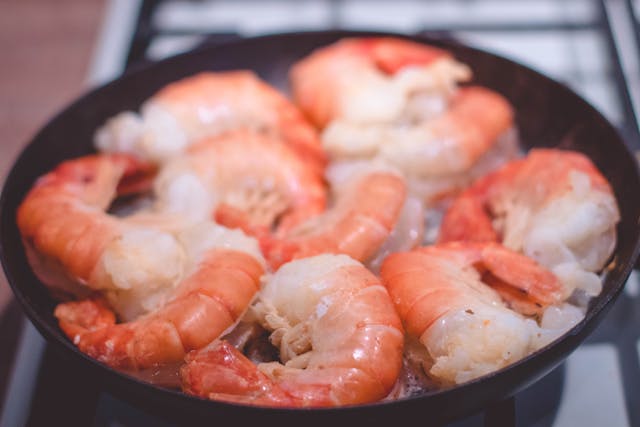Ahold Delhaize USA Supports Decarbonized Shrimp Supply Chain

Seafood leader Thai Union Group recently launched a program to reduce greenhouse gas emissions within the shrimp supply chain. The Shrimp Decarbonization initiative, developed in collaboration with environmental organization The Nature Conservancy and Ahold Delhaize USA, brings the industry closer to sustainable aquaculture practices, said supermarket chain Hannaford.
Ahold Delhaize USA is supporting the program and its subsidiaries Food Lion and Hannaford have agreed to purchase shrimp from the program.
“The Shrimp Decarbonization initiative represents a big step forward in sustainable aquaculture. We are proud to partner on this project, which we believe has significant potential for the retail sector and further advances our work to enable healthier people and a healthier planet,” said Marc Stolzman, chief sustainability officer for Ahold Delhaize USA, in a statement.
The pilot aims to produce 1,000 metric tons of processed shrimp that has a lower impact on the environment and meets the highest product quality standards. The shrimp will be imported by Thai Union subsidiary Chicken of the Sea Frozen Foods and will be fully traceable from the hatchery to the final point of shipment, said Hannaford.
"Working alongside The Nature Conservancy allows us to pioneer a model of shrimp production that is not only more environmentally responsible but also economically viable. Our pilot program for 2024 is a testament to our dedication to reducing carbon emissions and setting new sustainability benchmarks in the seafood industry," said Adam Brennan, chief sustainability officer at Thai Union, in a statement. "The Shrimp Decarbonization program is not just about reducing emissions; it's about transforming the shrimp industry into a more sustainable, efficient, and equitable sector. By proving that sustainable practices can lead to economic benefits, we aim to inspire and lead the way for the entire industry."
The program will make on-farm investments to enhance efficiency and productivity, reduce energy usage, and increase sourcing of sustainable feed ingredients, said Hannaford. The retailer adds that feed and farm optimization are identified as the key drivers for achieving productivity gains and emissions reductions.
If the pilot is successful, Thai Union plans to scale these efforts across other shrimp farms in Thailand and beyond. This expansion will introduce sustainable interventions to support the farms' transition to more sustainable practices.
